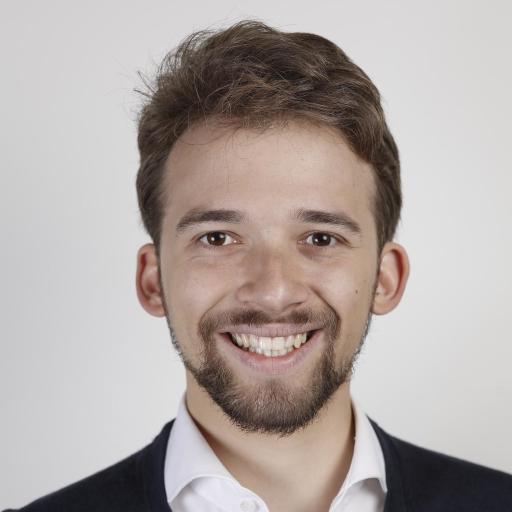
Alexander Dietmüller
I am a networking researcher focused on combining machine learning and control theory with communication networks. For me, this means: (i) how can we learn the interactions between traffic and networks; and (ii) how can ensure that the data-driven decisions are optimal, in particular at the tail?
I defended my dissertation titled Adaptive Network Traffic Modeling on the 29th of July 2024 under supervision of Prof. Dr. Laurent Vanbever, co-examined by Prof. Dr. Arpit Gupta and Dr. Francis Yan.
Among other topics, my dissertation tackles the problem of keeping ML models up to date with a focus on tail performance. (Re-training) ML models over time is known as continual learning (CL), and common CL systems are mostly focused on delivering good performance on average. Yet in networking, tail performance is very important, and thus I developed Memento: a system to reliably identify and remember rare samples to improve model performance at the tail. Furthermore, I also investigated how to efficiently learn general network dynamics by leveraging state-of-the-art ML architectures like Transformers to generalize network dynamics, i.e. extracting general patterns from a variety of traces for future predictions.
In 2022, I worked as a research intern with the Measurement Lab team at Google, supervised by Prof. Dr. Phillipa Gill and Matt Mathis.
In the past, I worked on programmable packet scheduling together with Dr. Albert Gran Alcoz and on using programmable data planes to learn traffic feature distribuitions together with Dr. Georgia Fragkouli. Finally, and with the help of other Master students, I also investigated various aspects of congestion control.
I received my Bachelor and Master degrees in Electrical Engineering and Information Technology from ETH Zürich.
Research Areas
Teaching
- Communication Networks:
Since 2017, except 2021 (TA) - Advanced Topics in Communication Networks: 2018–2021 (TA)
- Seminar in Communication Networks:
2019–2021 (TA)
Talks
A New Hope for Network Model Generalization
Publications
Supervised Theses
Student: Kevin Marti
Supervisors: Laurin Brandner, Alexander Dietmüller, and Laurent Vanbever
Student: Jonathan Rappl
Supervisors: Tibor Schneider, Yu Chen, Alexander Dietmüller, and Laurent Vanbever
Student: Benjamin Hoffman
Supervisors: Alexander Dietmüller and Laurent Vanbever
Student: Rahul Bhuiyan
Supervisors: Yu Chen, Alexander Dietmüller, and Laurent Vanbever
Student: Clemens Klopfstein
Supervisors: Georgia Fragkouli, Alexander Dietmüller, and Laurent Vanbever
Student: Nick Tuninga
Supervisors: Georgia Fragkouli, Alexander Dietmüller, and Laurent Vanbever
Student: Spencer Tellini
Supervisors: Alexander Dietmüller and Laurent Vanbever
Student: Siddhant Ray
Supervisors: Laurent Vanbever, Alexander Dietmüller, and Romain Jacob
Student: Lukas Röllin
Supervisors: Alexander Dietmüller, Romain Jacob, and Laurent Vanbever
Student: Patrick Wintermeyer
Supervisors: Maria Apostolaki, Alexander Dietmüller, Edgar Costa Molero, and Laurent Vanbever
Student: Lina Gehri
Supervisors: Alexander Dietmüller, Rüdiger Birkner, and Laurent Vanbever
Student: Fredrik Nestaas
Supervisors: Alexander Dietmüller and Romain Jacob
Student: Nicolas Adam
Supervisors: Edgar Costa Molero, Alexander Dietmüller, Roland Meier, Rui Yang, and Laurent Vanbever
Student: Patrick Wintermeyer
Supervisors: Maria Apostolaki, Alexander Dietmüller, and Laurent Vanbever
Student: Boya Wang
Supervisors: Maria Apostolaki, Alexander Dietmüller, and Laurent Vanbever
Student: Long He
Supervisors: Alexander Dietmüller, Maria Apostolaki, and Laurent Vanbever
Student: Sharat Chandra Madanapalli
Supervisors: Albert Gran Alcoz, Alexander Dietmüller, and Laurent Vanbever
Student: Robin Berner
Supervisors: Albert Gran Alcoz, Alexander Dietmüller, and Laurent Vanbever
Student: Áedán Christie, Marco Di Nardo, Lina Gehri
Supervisors: Alexander Dietmüller and Laurent Vanbever
Student: Coralie Busse-Grawitz
Supervisors: Roland Meier, Tobias Bühler, Alexander Dietmüller, and Laurent Vanbever